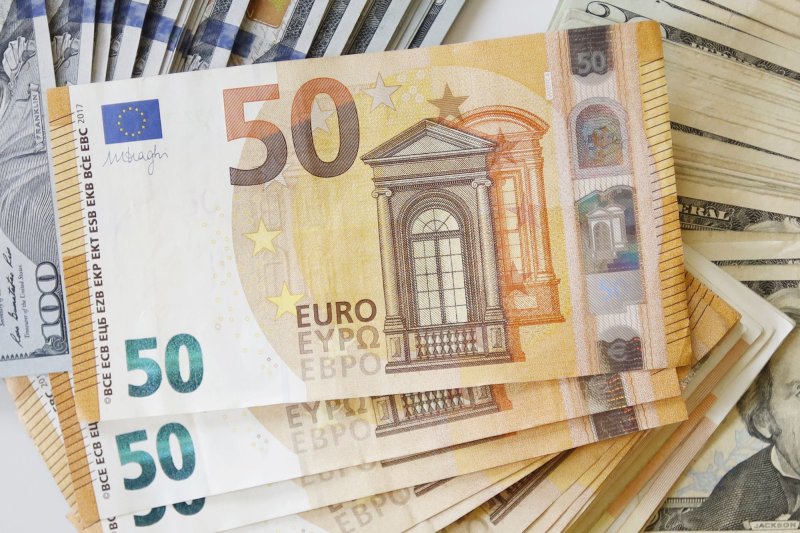Nineteen countries use the euro as their main currency and collectively form what's known as the eurozone. Only four of the members are outside of the European Union. Croatia will become the group's 20th member in 2023. File Photo by John Angelillo/UPI |
License Photo
Aug. 31 (UPI) -- Inflation rose to an all-time high of more than 9% during the month of August in the collective of 19 countries that use the euro as their main currency, new figures showed Wednesday.
The preliminary inflation estimate -- 9.1% over the past 12 months -- marks the ninth-consecutive month of record-high consumer prices going back to last November.
Consumer prices in the 19 countries, collectively known as the eurozone, rose by 0.2% from July to August. Most analysts expected that figure to be 0.1%.
At the top of the list of factors that are influencing prices in the eurozone are soaring energy prices and Russia's ongoing war in Ukraine, which has disrupted markets worldwide since it began in February.
Inflation in the zone is on path to eclipse 10% for the first time since the Eurosystem was established 23 years ago.
Experts say energy prices across Europe -- which are more than 38% higher than they were a year ago -- deserve most of the blame. The cost of food, alcohol and tobacco climbed to 10.6% over that time and inflation for industrial goods was up 0.5% compared to a year ago.
Wednesday's figures further demonstrate that rising prices are not unique to the United States and Britain. Earlier this month, the Bank of England voted to raise interest rates by a half-point, its largest hike in nearly 30 years, and the U.S. Federal Reserve hiked rates by 0.75% for the third straight meeting.
Britain's central bank cited several factors squeezing the British economy, including a "near-doubling in wholesale gas prices since May" and "Russia's restriction of gas supplies to Europe." Britain was a former member of the European Union for decades but used the British pound instead of the euro.
Underscoring the crisis, inflation in Germany -- which has the EU's largest economy -- reached 8.8% in August, the highest level in nearly 50 years.
There were at least a couple anomalies, however.
Inflation in France fell to 6.5% from 6.8% and Spain also saw a small decline, according to the National Statistics Institute.
The European Central Bank is also considering raising interest rates at its next meeting on Sept. 8 after ordering a 0.50% hike in July, which was its first increase in more than a decade.
Some experts fear a looming recession, and one said the situation looks "pretty bleak" in Europe.
"It looks inevitable that the euro area is headed for a recession. The question is only how deep it will be and how long it will last," economist Kenneth Wattret told CNBC.
"It's up to the ECB to take the right decisions, and we fully trust the ECB to take the right decisions, but the key point is to have a decrease in the level of inflation everywhere in Europe," French finance minister Bruno Le Maire said according to CNBC.















